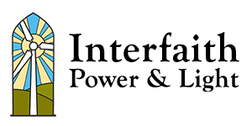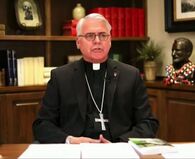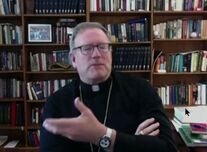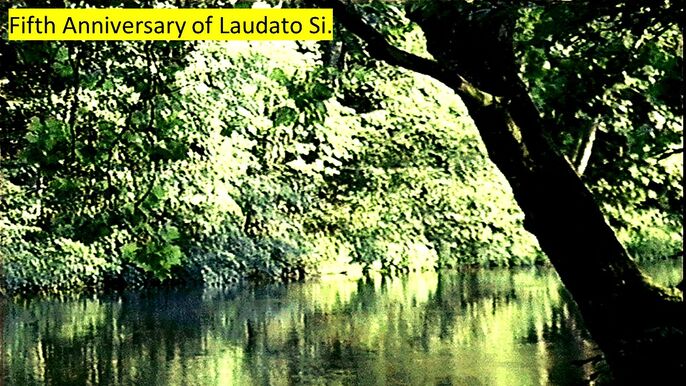
To celebrate the 5th Anniversary of Laudato Si’, Pope Francis’s inspiring encyclical on the environment (and so much more), the Catholic Climate Covenant (CCC) took a unique approach. CCC brought together an on-the-ground social justice organizer and three bishops engaged in the Climate issue to unpack some of what the Holy Father had to say about this most pressing issue of our time.
For the author, the webinar’s strength was the presentation of several contexts for understanding the rich Catholic tradition of valuing the environment.
A video recording of the virtual “Bishops’ Roundtable Conversation” is available here. For an excellent, broader collection of climate change resources, visit https://catholicclimatecovenant.org/resources Or, to view the Catholic Climate Covenant’s 12-minute video created to commemorate both the 50th anniversary of Earth Day and the 5th anniversary of Laudato Si’, click here.
For the author, the webinar’s strength was the presentation of several contexts for understanding the rich Catholic tradition of valuing the environment.
A video recording of the virtual “Bishops’ Roundtable Conversation” is available here. For an excellent, broader collection of climate change resources, visit https://catholicclimatecovenant.org/resources Or, to view the Catholic Climate Covenant’s 12-minute video created to commemorate both the 50th anniversary of Earth Day and the 5th anniversary of Laudato Si’, click here.

Others are marking the encyclical’s anniversary with calls to action. Interfaith Power and Light (IPL) has challenged faith communities to reduce their carbon footprints and then invites them to apply for a certificate that recognizes their work. The process to become a “Cool Congregation” is straight forward and results in a win for both the environment and the congregation.
The Cool Congregation website provides guidelines and an impressive list of previous certificate recipients from a variety of faith traditions.
There are varying levels of commitment and multiple tiers of accomplishment. The levels are based on the amount of CO2 reduction. Each one has detailed instructions in their guide, “Five Steps to Becoming A Cool Congregation.” To assist with CO2 measurement, the IPL provides a “Cool Calculator” that helps establish a baseline against which improvements can be measured. It really isn’t complicated and the payback in CO2 reduction is impressive. What’s more, most efforts result in cost savings for the communities. Best of all, the process will yield outcomes in line both with the spirit and letter of Laudato
Si’. Praise be!
The Cool Congregation website provides guidelines and an impressive list of previous certificate recipients from a variety of faith traditions.
There are varying levels of commitment and multiple tiers of accomplishment. The levels are based on the amount of CO2 reduction. Each one has detailed instructions in their guide, “Five Steps to Becoming A Cool Congregation.” To assist with CO2 measurement, the IPL provides a “Cool Calculator” that helps establish a baseline against which improvements can be measured. It really isn’t complicated and the payback in CO2 reduction is impressive. What’s more, most efforts result in cost savings for the communities. Best of all, the process will yield outcomes in line both with the spirit and letter of Laudato
Si’. Praise be!

Returning to the May 20th online conversation, Marianne Comfort, justice coordinator for the Sisters of Mercy, brought questions to Archbishop Paul S. Coakley (Archdiocese of Oklahoma City), Bishop Robert Barron (Archdiocese of Los Angeles), and Bishop Robert W. McElroy (Diocese of San Diego). The discussion ran the gamut - from components as abstract as evolving philosophy and theology to concrete examples of efforts to address climate change. The conversation was rich and left a number of impressions.

Archbishop Coakley spoke about the importance of ecological conversion. The group cited the Amazon region as the place in the world where ecological conversion is taking place at such a pace that there is a real urgency to the demand for action to mitigate or end the damage from climate change. Archbishop Coakley observed too that while public reception to the provocative ideas in the Laudato Si’ is quite mixed, there is enthusiasm for it not just in the Catholic Church, but much more widely. This fact is illustrated in the number of references to Laudato Si’ in social media. Additionally, many other faiths share the theology of stewardship of the earth found in Catholicism. This unifying principal will be the subject of a subsequent blog entry.

Bishop Barron argued that, in the encyclical, Pope Francis challenges the concept of human mastery of nature, taking a post-modernist position. Bishop Barron sees Pope Francis, in this way, as critical of modernity, recognizing this aspect of it as dangerous. The Pope calls for a reduction of human subjectivity – as this anthropocentrism leads to a tendency to see nature solely as something to be used or controlled. Bishop Barron also reported a hopeful sign, noting that he has seen good integration of Laudato Si’ in the Catholic schools and parishes in Los Angeles. He expressed great appreciation for how quickly actions advocated for in the encyclical have taken place in his community. He recognizes these actions to be vital because we are called to be stewards of the earth.

Bishop McElroy expressed his concern about the lack of urgency among the general public in dealing with climate change. He believes this stems from a basic failure to understand the fragility of all nature. He notes, however, that young people, on the whole, understand the themes of the encyclical and are taking action. Unfortunately, he does not see an appropriate response level from society, considering the speed of climate change. Despite this, Bishop McElroy remains hopeful, citing the work and energy of youth, scientists and religious organizations around the issue.
May the energy from these groups, from organizations like Catholic Climate Covenant and Interfaith Power and Light, and the challenge of the encyclical spark us all to take action to care for our common home.


 RSS Feed
RSS Feed